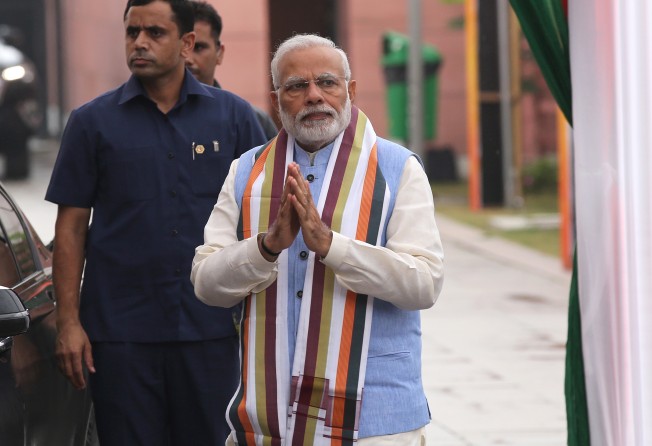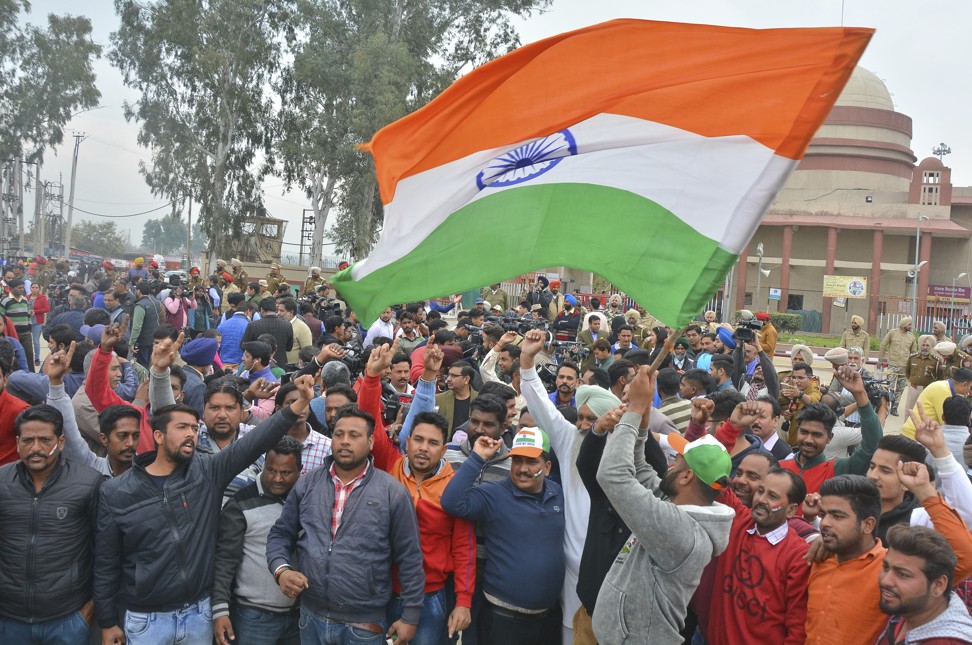India’s security dilemma with Pakistan is one it can’t bomb, blockade or ‘isolate’ its way out of
- Continuing activity by hostile militant groups suggests that India’s responses to terrorist attacks, formed in 2016, cannot resolve the problem and new thinking may be required

Last month’s suicide attack by the terrorist group Jaish e Muhammad, killing 40 Indian soldiers, and the rise in militancy in the Kashmir valley since 2014 have taken hostilities in the region to new levels. The strikes by the Indian Air Force on a militant training facility in Balakot, followed by the Pakistan Air Force’s retaliatory air strikes (and threats to exercise the nuclear option) showed the difficulties New Delhi faces in responding to such conditions through conventional means.
With attacks on Indian forces on the rise, New Delhi is bracing for a revival of the situation that prevailed in the 1990s and early 2000s, when militancy reached an all-time high. In response to the terrorist attack on an Indian Army base in Uri that killed 19 soldiers in September 2016, three options were floated to pressure Pakistan: cross-border surgical strikes, reviewing the Indus Waters Treaty between the two nations and “isolating” Pakistan internationally.
The same options are back on table. However, they may not compel Pakistan to change its Kashmir policy along the lines New Delhi would like.
First, in conducting – and acknowledging – the surgical strikes in September 2016, New Delhi’s larger motive was to demonstrate its capability (and willingness) to cross the Line of Control to strike Pakistani territory. That militant groups continue to operate after such strikes only confirms their ability to withstand such shocks. Further, unlike the Pulwama attack, where the casualties were in full public view, Pakistan can deny Indian claims of surgical strikes.
Whether the Indian military’s willingness to cross the border and strike potential infiltrators has stopped Pakistan from supporting these proxy groups came into focus again after the air strikes in Balakot. They attracted an expected response: Pakistan’s retaliatory bombing along the Indian side of the border in Jammu was followed by a meeting of the National Command Authority under Prime Minister Imran Khan to discuss the nuclear option in an attempt to deter India from escalating the conflict. Meanwhile, attacks by proxy groups continue in Kashmir, thereby ruling out any change in the continuing asymmetric warfare strategy.
Second, immediately after the Uri attacks in September 2016, Indian Prime Minister Narendra Modi chaired a top-level meeting looking into the pros and cons of the Indus Waters Treaty, signalling that the Indian government was set to review it. After the Pulwama attacks, India threatened Pakistan, saying it would not get “even a single drop of water” if it continued to “export terrorism to India”. Since the treaty stipulates that 80 per cent of the river water should flow to Pakistan, a common refrain among Indian policy hawks is to withdraw, since it is viewed as unfair.
Legally, any move by India to divert water from Pakistan’s share may automatically attract intervention by the World Bank, as well as strong international criticism. The mere talk of India’s withdrawal from the treaty is construed by Islamabad as a threat to their nation’s survival. Also, it is too early to say whether New Delhi is really prepared to withdraw, or how it would respond to international criticism.
Third, New Delhi once again called for “isolating” Pakistan to pressure it to rein in various anti-India extremist networks. Talk of isolating Pakistan has been in the public domain since the Uri attacks, but there is a good deal of ambiguity as to how New Delhi would go about doing so to impact Pakistan’s Kashmir policy.
New Delhi realises that the larger concern in South Asia is the ongoing US-Taliban talks, wherein Pakistani agencies have yielded to the long-standing American demand of getting the Taliban to sit down and discuss a power-sharing deal with other political stakeholders. As Washington prepares for a final drawdown, it is dependent on Pakistan for a graceful exit in lieu of accepting the Taliban as a legitimate player in Afghan politics.
Therefore, at a time when Washington needs Pakistani support, expecting the American leadership to take any adverse steps seems unlikely, which negates any “isolation” policy.
However, this does not rule out the possibility that India may modify these options, as showed with the recent air strikes. For now, New Delhi seems to be stuck on repeat mode in its policy responses to Pakistan.
Prateek Joshi is a research associate with VIF India, a New-Delhi-based public policy institution
